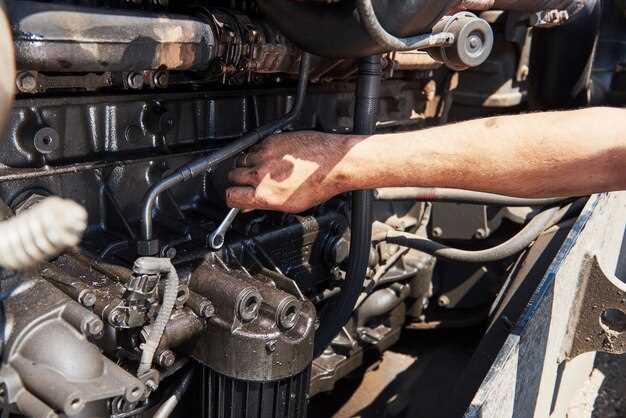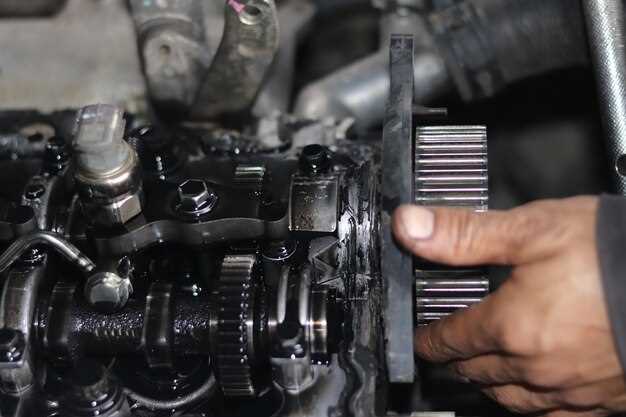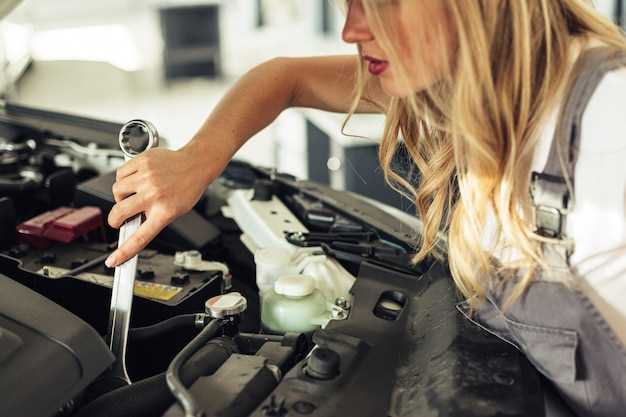

Diesel engines are renowned for their durability and efficiency, making them a popular choice in various applications, from automobiles to industrial machinery. However, like any mechanical system, they are not immune to problems. Identifying common diesel engine issues is crucial for timely and effective repair, which can save both time and money.
Understanding the nature of these issues can help in diagnosing problems early. For instance, fuel injector malfunctions, hard starting, and excessive smoke are just a few symptoms that may indicate underlying problems within a diesel engine. Each of these issues requires specific attention and often a tailored approach to repair, highlighting the importance of expert knowledge in diesel mechanics.
In this article, we will explore some frequent challenges faced by diesel engines, delving into their causes, symptoms, and the most effective solutions. Whether you are a seasoned mechanic or a diesel engine owner, having a solid grasp of these common issues will empower you to keep your vehicle or machinery running smoothly.
Identifying and Fixing Fuel Injection Problems
Fuel injection problems in diesel engines can lead to significant performance issues, making it crucial to identify and repair these troubles promptly. One common sign of fuel injection issues is rough idling. If the engine shakes or vibrates excessively while running, it may indicate faulty injectors that require immediate attention.
Another indicator is decreased fuel efficiency. If the vehicle consumes more diesel than usual without an apparent reason, it could be linked to improper fuel atomization caused by malfunctioning injectors. Additionally, poor acceleration or a lack of power during operation can be symptomatic of issues with fuel delivery, necessitating a thorough inspection.
To diagnose fuel injection problems, mechanics often employ a process of elimination. They begin by checking for error codes through the engine control unit (ECU) and inspecting injector functionality with a multimeter. A visual inspection of the injectors for leaks or cracks is also essential. If the injectors are clogged, the use of a professional cleaning solution can help restore their functionality.
If repairs are needed, replacing damaged or worn-out injectors is a common solution. In some cases, recalibrating the fuel injection system may also be required to ensure proper fuel flow and pressure. Regular maintenance, such as changing fuel filters and using high-quality diesel, can prevent these issues from developing in the first place.
In summary, recognizing the symptoms of fuel injection problems and taking appropriate steps to repair them can enhance the overall efficiency and longevity of diesel engines. Early intervention is key to avoiding more extensive repairs and maintaining optimal performance.
Troubleshooting Overheating Issues in Diesel Engines

Overheating in diesel engines is a common problem that can lead to severe damage if not addressed promptly. Identifying the cause of overheating is essential to implement effective repairs and ensure the longevity of the engine.
1. Check Coolant Levels: One of the first steps is to inspect the coolant levels in the radiator and overflow reservoir. Low coolant can lead to inadequate heat dissipation, resulting in engine trouble. If levels are low, fill with the appropriate coolant mixture and check for leaks.
2. Inspect the Radiator: A clogged or damaged radiator can impede coolant flow, causing overheating. Remove any debris from the exterior and ensure the internal passages are clear. Flush the radiator system if necessary to eliminate any blockages.
3. Examine the Thermostat: A malfunctioning thermostat can either stick closed, preventing coolant circulation, or remain open, causing inefficient engine heating. Testing the thermostat with hot water can determine if it is functioning correctly. Replace it if needed.
4. Check the Water Pump: The water pump is critical for circulating coolant throughout the engine. Inspect for leaks, noise, or inefficiency. A failing water pump should be replaced to maintain proper coolant flow.
5. Assess Fan Operation: Ensure the engine cooling fan is operating as intended. If the fan is not turning on or off correctly, it may be due to a faulty fan clutch or electrical issues. Test the fan’s operation and repair or replace components as needed.
6. Monitor Airflow: Adequate airflow through the engine compartment is crucial for cooling. Check for obstructions such as dirt, leaves, or malfunctioning air intake systems that could restrict airflow. Clean and clear any obstacles to improve cooling efficiency.
7. Inspect for Exhaust Restrictions: Blockages in the exhaust system can lead to hot exhaust gases backing up into the engine. Verify that the exhaust system is clear and unobstructed, as this can significantly affect engine temperature.
Identifying and repairing overheating issues promptly can prevent extensive damage to a diesel engine. Regular maintenance and monitoring of engine components are vital in preventing overheating and ensuring reliable performance.
Addressing Common Electrical System Failures

Diesel engines rely on a robust electrical system to operate efficiently. However, issues can arise, leading to trouble in starting, running, or overall performance. Understanding common electrical system failures is crucial for timely repair and maintenance.
One frequent problem is a weak or dead battery. This can prevent the engine from starting, especially in cold weather. Regularly checking the battery’s charge and connections can help prevent this issue. If the battery is old or damaged, replacement is necessary to ensure reliable operation.
Another common failure involves alternator malfunctions. The alternator is responsible for charging the battery and powering electrical components while the engine runs. If the alternator fails, the battery will not charge, leading to potential system failure. Testing the alternator’s output should be part of regular maintenance. If inadequate, repair or replacement is required.
Cables and wiring can also become compromised due to wear, corrosion, or damage. Frayed wires may cause intermittent electrical issues, impacting engine performance. Regular inspections and timely repairs of damaged wiring can prevent costly breakdowns and ensure the diesel engine operates smoothly.
Starter problems are another significant concern. A failing starter can lead to difficulty in engine ignition. It is essential to listen for abnormal noises from the starter or experience any delays in turning over the engine. The starter should be tested and replaced if found faulty to avoid further trouble.
Electrical connections should be checked periodically. Loose or corroded connections can lead to erratic performance and system failures. Ensuring that all connections are clean and tight is vital for optimal functionality.
In summary, addressing common electrical system failures in diesel engines involves regular maintenance and prompt repairs. By understanding these issues and taking preventive measures, operators can reduce downtime and enhance engine reliability.






